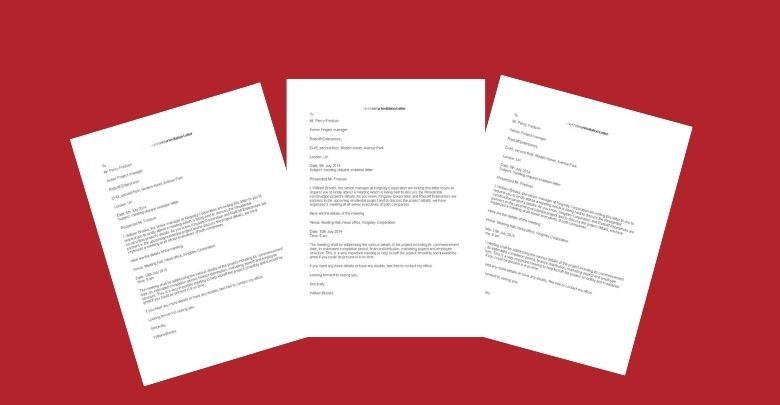Attending a business conference in Canada is a fantastic opportunity to expand your professional network and gain valuable insights into your industry. But before you start packing your bags, an important question may cross your mind: Do I need a work permit to attend a business conference in Canada?
The short answer is—it depends. If your role involves simply attending and observing the event, you might not need a work permit. However, active participation like presenting or conducting business activities could require one. Acknowledging these distinctions can help you avoid unnecessary hurdles.
Curious to know more? Read on as we explain the specifics of work permit requirements, so you can prepare confidently for your next business trip to Canada.
What is a Work Permit and Why is It Important for Travelers?
A work permit is an official document issued by a country’s government that allows foreign nationals to engage in employment activities within its borders for a specified period. It acts as legal authorization to work, ensuring that both employers and employees comply with the country’s labor and immigration laws.
For travelers attending events like business conferences, knowing the role of a work permit is crucial for a smooth experience. Here are the reasons why a work permit is important for travelers.
- Legal Compliance: A work permit ensures that you meet the legal requirements to engage in professional activities in a foreign country. Without it, you risk violating immigration laws, which could lead to fines or even deportation.
- Smooth Border Crossing: Having a work permit helps clarify your purpose for entering the country when interacting with immigration officials. It significantly reduces the chances of facing complications or delays at the border.
- Professional Opportunities: With a work permit, you can take advantage of opportunities like presenting, networking, and negotiating business deals during the conference. It opens doors to collaborations that would otherwise be off-limits.
- Employer Trust and Credibility: Employers or business partners are more likely to engage with you if they know you have the legal authorization to work in their country. It boosts your credibility and develops professional relationships.
- Avoiding Penalties: Working without proper authorization can lead to severe consequences, including being banned from re-entering the country. A work permit safeguards you from these risks and ensures you can focus on your professional goals.
Being aware of the importance of a work permit helps travelers prepare adequately, ensuring that they can make the most of their international business engagements without any legal obstacles.
Do I Need a Work Permit to Attend a Business Conference in Canada?
Whether you need a work permit to attend a business conference in Canada largely depends on the type of activities you’ll be engaging in while at the event. To make it easier to understand, here’s an explanation of common scenarios that will help you determine if a work permit is necessary for your visit.

Passive Participation (No Work Permit Needed)
If your role is purely as a passive participant, meaning you’re attending sessions, listening to presentations, and networking, then you do not need a work permit. Activities like asking questions, taking notes, or discussing ideas informally fall under this category. These actions are generally seen as non-productive from a work standpoint. Passive participation is considered tourism, so a visitor visa is usually sufficient for such engagements.
Active Participation (Work Permit Needed)
If you’re planning to give a presentation, lead a workshop, or speak at the event, you will likely need a work permit. Engaging directly with the audience or representing your company during the event classifies as active participation, which requires legal authorization to work in Canada. Paid roles or compensated activities, even if conducted during a short stay, almost always necessitate a work permit.
Training Sessions (Work Permit Likely Required)
Conducting or leading training sessions for Canadian companies generally requires a work permit, even if you’re not directly employed by the company. If your role at the conference involves teaching skills, offering instructions, or guiding others, then you’re actively contributing to the workforce. The Canadian authorities often treat training as a productive work activity, which means you’ll need to secure a permit before your visit.
Business Negotiations (Case-Dependent)
Attending meetings to negotiate deals or sign contracts may sometimes fall into a gray area. While some business negotiations are allowed under a business visitor visa, it’s best to confirm with immigration officials. If your involvement includes representing your company in legal or financial negotiations, it’s safer to obtain a work permit. For peace of mind, always carry documentation that clearly defines the purpose of your visit and your role in the negotiations.
Short-Term Business Visitors (No Work Permit Needed)
If your stay is less than six months and involves market research, sales, or training temporarily, you may qualify as a short-term business visitor. As long as you are not actively engaging in direct employment or paid services for a Canadian company, a work permit might not be necessary. Confirm your eligibility for short-term business visitor status to ensure you comply with Canadian immigration rules.
Country-Specific Regulations (Check Requirements)
Some countries have specific agreements with Canada that simplify the entry requirements for conference attendees. For example, if you plan to attend a business conference in Canada 2024 with invitation letter, it might influence your need for a work permit or visiting visa depending on your country’s regulations. Always consult the Canadian immigration website or an expert to verify the rules that apply to your situation.
Knowing these distinctions can save you from unnecessary complications at the border. Knowing the exact nature of your activities at the conference will help you determine whether you need a work permit or if a visitor visa will suffice. Prepare well, and you’ll be set for a smooth, hassle-free experience at your next business conference in Canada.
How to Apply for a Work Permit if You Need One?
Applying for a work permit to attend a business conference in Canada can be simple if you follow the right steps. Here’s a detailed guide to help you through the process, broken down below.
Step 1: Determine the Type of Work Permit You Need
Start by identifying whether you need an employer-specific work permit or an open work permit. For business conference attendees, an employer-specific permit is more common if you’re engaged in paid activities. Knowing the exact type of permit ensures you provide the correct documentation right from the beginning.
Step 2: Gather All Required Documents
Collecting the necessary documents is crucial for a smooth application. Typically, you’ll need a valid passport, a letter of invitation from the conference organizers, proof of your professional background, and details about your business activities in Canada. Ensuring these documents are accurate helps prevent delays in processing.
Step 3: Complete the Application Form Online
The next step is to fill out the work permit application form on the official Immigration, Refugees, and Citizenship Canada (IRCC) website. Make sure to double-check all your details for accuracy, as any errors could lead to a rejection or delay. Providing truthful and consistent information is key to a successful application.
Step 4: Pay the Application Fees
Pay the required application fees, which can vary depending on the type of work permit you’re applying for. Payment is usually done online, and you’ll need to keep the receipt as proof. This step is critical because your application won’t be processed until the fee is paid.
Step 5: Submit Biometrics if Required
Depending on your country of origin, you might need to submit biometric information like fingerprints and a photo. You’ll receive instructions on how and where to complete this step after submitting your application. Timely submission of biometrics ensures faster processing.
Step 6: Wait for Approval and Stay Updated
After submitting everything, it’s time to wait for the approval. Processing times can vary, so it’s best to apply well in advance of your planned conference date. Keep an eye on your email or the online application portal for updates, and be ready to provide additional information if requested.
Following these steps will help you get through the application process smoothly, giving you peace of mind as you prepare to attend your business conference in Canada.
What Types of Visas are Required to Attend a Business Conference in Canada?
When attending a business conference in Canada, choosing the right visa type is essential for a smooth entry. Here are the most common visa options to consider.
Visitor Visa (Temporary Resident Visa – TRV)
Most international travelers attending a business conference in Canada require a Visitor Visa, also known as a Temporary Resident Visa (TRV). This visa allows you to enter Canada as a tourist or business visitor for short-term stays, typically up to six months. Securing a business visa for attending a conference in Canada might involve proper documentation.
Business Visitor Visa
If you’re traveling specifically for business purposes, a Business Visitor Visa might be ideal. This visa applies to individuals attending meetings, conferences, or seminars without directly entering the Canadian labor market. It covers activities like networking, attending training sessions, or discussing business deals, as long as you aren’t performing paid work.
Electronic Travel Authorization (eTA)
For citizens of visa-exempt countries, an Electronic Travel Authorization (eTA) is required when flying to Canada. The eTA is electronically linked to your passport and allows you to visit Canada for up to six months for tourism or business. It’s straightforward to apply online and is often processed within minutes.
Work Permit
If your role at the conference involves actively presenting, training, or performing tasks for a Canadian employer, a Work Permit may be necessary. This permit is required when you engage in activities that go beyond simply attending the event, such as speaking engagements or consulting work.
You can streamline your travel plans by understanding which type of visa applies to your situation. Be sure to check Canada’s official immigration website for the latest guidelines to ensure you meet all requirements for your business conference trip.
Common Mistakes to Avoid When Applying for a Work Permit
Applying for a work permit can be a simple process, but even small errors can lead to delays or rejection. To help you handle this, here are the common mistakes to avoid.
Incomplete Application Forms
One of the most frequent errors is leaving sections of the application form incomplete. Make sure every field is filled out accurately and thoroughly. Even a small oversight can cause your application to be delayed or even rejected, so double-check all your details.
Submitting Incorrect Documentation
Providing the wrong documents or missing essential paperwork can seriously affect your chances of approval. Always refer to the specific list of required documents provided by the immigration authorities to ensure you’re submitting exactly what’s needed for your situation.
Applying Too Late
Timing is crucial when it comes to work permit applications. Many people apply too close to their intended travel date, underestimating the processing time. It’s best to submit your application well in advance to account for any delays or additional information requests.
Not Explaining the Purpose Clearly
A lack of clarity about the purpose of your visit can lead to misunderstandings about your application. Clearly explain your role and activities during the business conference, so the immigration officers understand the necessity of your work permit.
Ignoring Updates or Requests from Authorities
Failing to respond promptly to any additional requests for information or updates from the immigration office is a common mistake. Ignoring these requests can cause unnecessary delays or even result in denial, so stay attentive and respond as soon as possible.
Avoiding these mistakes will streamline your work permit application process and improve your chances of a smooth, successful entry into Canada.
How To Obtain an Invitation Letter to Attend a Business Conference in Canada?
Obtaining an invitation letter to attend a business conference in Canada is essential for your visa or work permit application. Here’s a step-by-step guide to help you secure one.
Research the Conference Details
Begin by thoroughly researching the conference you plan to attend. Ensure it aligns with your professional goals and that you meet the event’s eligibility criteria. Knowing the event details will help you communicate more effectively with the organizers.
Register for the Conference
Most conferences require attendees to register before issuing an invitation letter. Complete the registration process by providing your personal details and paying the registration fee. This confirms your commitment and makes it easier for the organizers to validate your request.
Contact the Organizers Directly
Reach out to the conference organizers through the official website or email. Politely request an invitation letter by explaining your interest in attending the event. Be sure to mention how your participation will benefit both you and the conference itself.
Provide Necessary Information
Include all the essential details that the organizers might need, such as your full name, job title, company name, and passport details. This will speed up the process. One of the best ways to get Canada invitation letter for business conference is to provide clear and detailed information upfront.
Follow Up Politely
If you don’t hear back within a reasonable time, follow up with a courteous reminder. Restate your request and express your eagerness to attend. Persistence is key, but always remain professional and patient in your communication.
Review the Invitation Letter Carefully
Once you receive the invitation letter, review it thoroughly for accuracy. Make sure all details match your travel documents. If you spot any errors, contact the organizers immediately for corrections before you proceed with your visa or work permit application.
Following these steps will help you secure a well-crafted invitation letter, making your journey to a business conference in Canada smoother and more organized.
Frequently Asked Questions (FAQs)
Attending a business conference in Canada often raises various questions regarding work permits. Here are some frequently asked questions to help clear up any doubts you might have on this topic.
Can I Attend a Business Conference in Canada with a Visitor Visa?
Yes, you can attend as a passive participant with a visitor visa. However, if you plan to present or engage in work-related activities, you may need a work permit to comply with Canadian regulations.
What Happens if I Attend a Business Conference without a Work Permit in Canada?
Attending without the required work permit could lead to issues at the Canadian border, including being denied entry. Ensure you have the correct authorization to avoid complications during your trip.
Is a Work Permit Mandatory for All Business Conferences in Canada?
No, a work permit is not mandatory for all conferences. It’s only required if you actively participate, such as giving presentations or conducting business activities that directly benefit a Canadian entity.
How Can I Find out if My Conference Role Requires a Work Permit in Canada?
Check with the conference organizers about your role’s requirements. You can also consult the official Canadian immigration website to clarify whether your activities classify as active participation needing a work permit.
Do I Need a Work Permit to Attend a Business Conference in Canada if I’m Representing My Company?
It depends on your level of engagement. If you’re only networking or observing, you likely don’t need a work permit. However, active representation of your company’s interests might require one, especially if it benefits a Canadian business.
Conclusive Words
Attending a business conference in Canada is an exciting opportunity, but familiarizing yourself with the rules is key. So, do I need a work permit to attend a business conference in Canada? It really depends on whether you’re actively participating or simply observing.
For most attendees who are there to listen and network, a visitor visa should be enough. However, if you plan to present, train, or engage in direct business activities, a work permit may be necessary to stay compliant with Canadian laws. Knowing these details ahead of time can make your journey smooth and stress-free.







